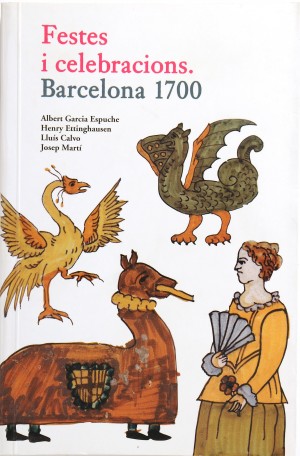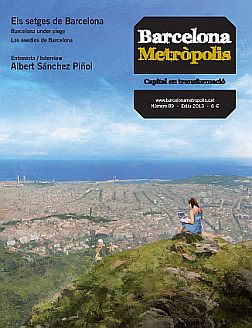 Festes i celebracions [Festivals and celebrations]
Festes i celebracions [Festivals and celebrations]- La ciutat del Born. Barcelona 1700 Collection
- Albert Garcia Espuche (director)
- Barcelona City Council. Museu d’Història de la Ciutat
- Barcelona, 2010
- 310 pages
The Festes i celebracions (2010) volume of Barcelona 1700 includes articles by Albert Garcia Espuche, Henry Ettinghausen and Lluís Calvo with Josep Martí which underline the collection’s general thesis: before 1700, Barcelona was an open and passably happy city in which religious and profane festivals (and even the more strictly political ones) heralded, paradoxically, an opportunity to reinforce the bonds of coexistence, and where political struggle often leveraged, almost strategically, recreational celebration.
In urban anthropology it is well known that festivals, far from being a reason for disproportionate revelry, are a well-defined manifestation of civility: the festival brings people together, leading to a social transversality that everyday work precludes. The article “Una ciutat de festes” [A city of festivals], by Garcia Espuche, a large part of which addresses Carnival, also makes an assertion that is of great significance for the study of the network of urban relationships. If his thesis is correct, the role of guilds and associations as the organisers of festivals was the element that afforded the latter a significance of their own and curtailed possible disturbances and unruliness by supposedly conflictive groups. The city’s autonomy was also a guarantee of order. At the end of the day, places like El Born were still like “town squares”, far removed from any aristocratic space. Barcelona, yesterday and today, had few spaces for the scenography of power.
One significant topic, also addressed by Ettinghausen in the article “Barcelona, centre mediàtic del segle XVII” [Barcelona, 17th-century media centre], is the fight between the religious and civil authorities to control festivals. Both the small publications released for canonisation festivals or when eminent personages visited the city and the official rules of associations (but never their activities!) show that festivals in honour of patron saints were more recreational than religious, and the repeated prohibitions are, in themselves, a clear expression of the failure of repression.



